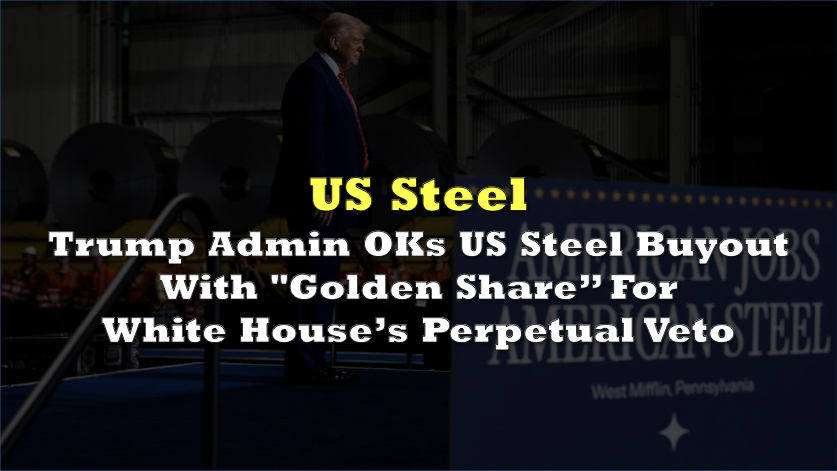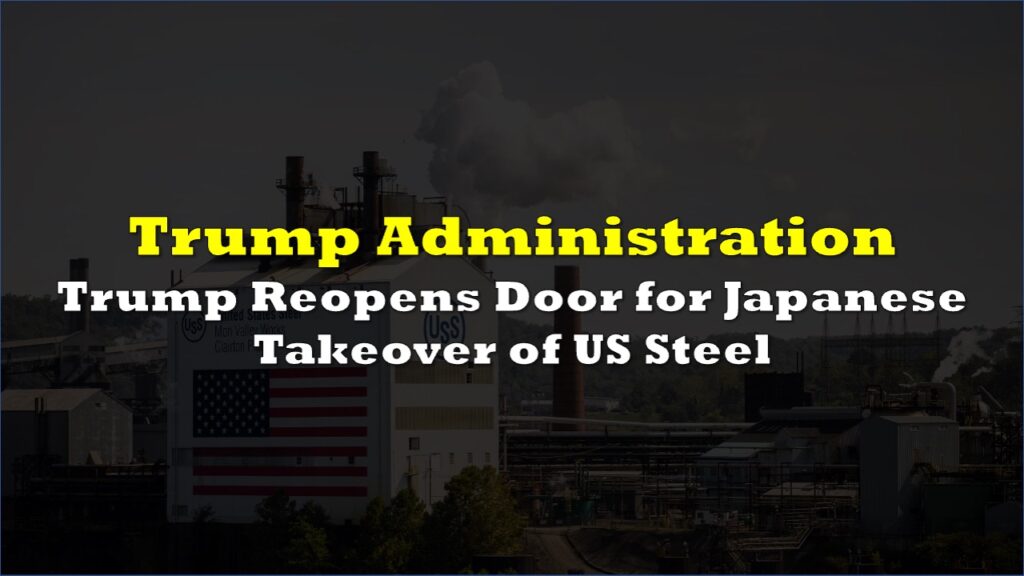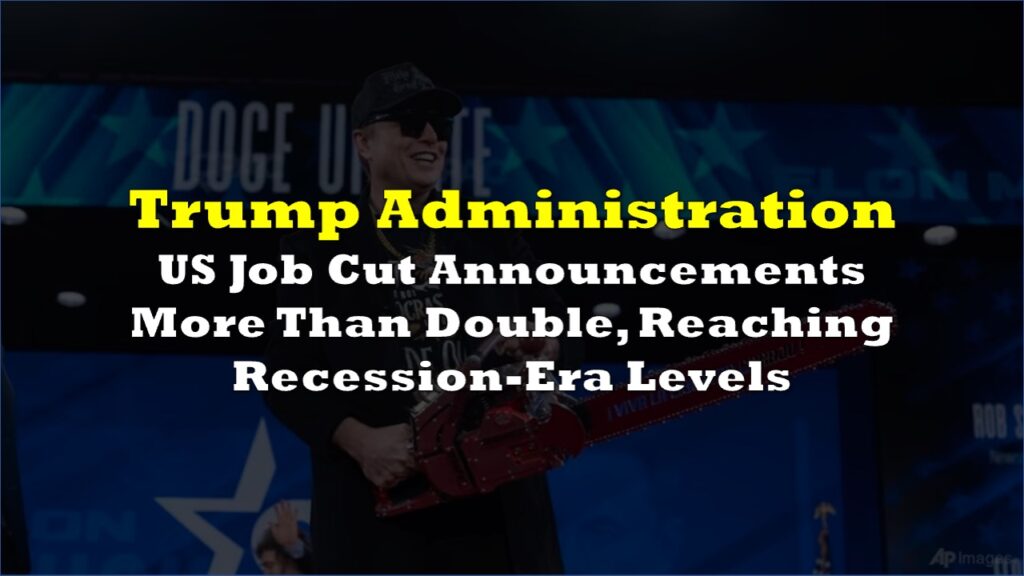In another challenge to the line between government and private interests, the Trump administration has cleared Nippon Steel’s $14 billion acquisition of US Steel, only after inserting a novel “class G” preferred share that gives any sitting president permanent veto power over major corporate decisions.
President Donald Trump hailed the arrangement—codified under a national-security pact—as “total control,” adding that future presidents will inherit the same authority.
Commerce Secretary Howard Lutnick says the share blocks any headquarters move from Pittsburgh, prevents plant closures or job transfers abroad, and locks in what he now touts as “at least $28 billion” of new domestic investment. He called the terms “powerful” protection for US workers and manufacturers.
Yet the United Steelworkers union, which had urged the White House to scuttle the foreign takeover, condemned Trump for reversing course and “jeopardizing the future of American steelmaking.”
President Trump has secured a perpetual Golden Share as part of Nippon Steel’s acquisition of U.S. Steel. This partnership between the United States and Nippon Steel includes historic $14 billion investment in U.S. Steel by Nippon Steel that will revitalize this strategic and…
— Howard Lutnick (@howardlutnick) June 14, 2025
Legally, the maneuver stretches Section 721 of the Defense Production Act—the statute behind CFIUS reviews. Previous interventions, such as the Treasury’s crisis-era stake in General Motors, were temporary rescue measures that Congress expected the government to exit.
By contrast, the class G share is perpetual, noneconomic, and embedded in US Steel’s Delaware charter, raising the prospect of shareholder suits that it violates directors’ fiduciary duties.
Constitutional scholars see echoes of Youngstown Sheet & Tube v. Sawyer, the 1952 Supreme Court ruling that struck down presidential seizure of steel mills. That decision warned that executive power over private industry, absent explicit statutory authority, risks overstepping separation-of-powers limits.
Globally, governments do use golden shares in “national champions”—Brazil retains one in Embraer for defense vetoes, while Britain holds a special share in BAE Systems—but European courts have struck down similar stakes in Portugal Telecom and other firms as barriers to capital flows.
Information for this story was found via The New York Times and the sources mentioned. The author has no securities or affiliations related to the organizations discussed. Not a recommendation to buy or sell. Always do additional research and consult a professional before purchasing a security. The author holds no licenses.









